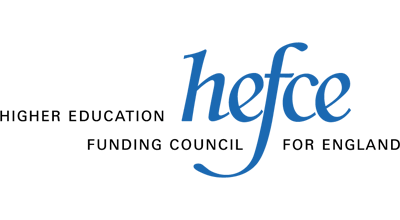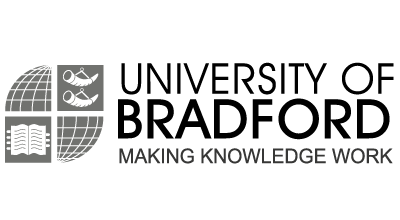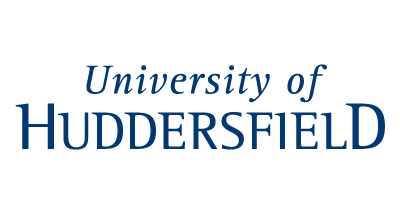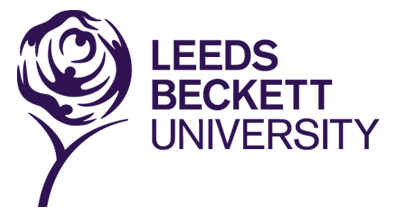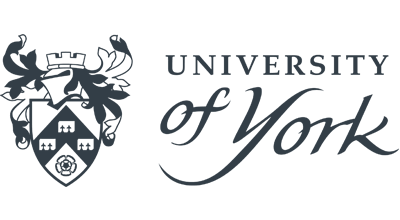Meet our mentors

The benefits of mentoring
Mentoring involves one person providing support and guidance to another in order to help them manage their own learning and development.
There are many potential benefits.
- Mentees can expect to receive guidance and advice from a mentor with relevant experience and expertise – someone to act as a sounding board, share ideas with, and/or who can provide valuable contacts.
- In return, mentors expect to gain satisfaction at the mentee’s success, future goodwill, challenge and stimulation, and further their own career and personal development opportunities.
The Translate team will do their best to match the needs of mentees with the skills and expertise of experienced mentors from industry, academia, clinical settings or regulatory environments.
For further details, eligibility criteria and deadlines, download the Translate: Me Mentoring Guidelines and Expression of Interest Form (Downloads document within a new tab)
Any further queries please contact L.Hill1@leeds.ac.uk
A selection of our mentors
Alex helps individuals and organisations improve their capability to both develop new technologies, and manage the journey to successful innovation. Whether projects need direct management, or individualised support, he specialises in tackling integrated, complex, and multi-disciplinary challenges common to bringing challenging technologies to market. This involves holistic development – integrating the technology with the regulatory framework, market/consumer needs, quality management expectations and political/economic/social expectations to overcome the barriers, including adoption, which result in the majority of innovation failures.
Recently he founded Full Spectrum Innovation – aimed at pioneering hands-on support to deliver tangible benefits for society by reducing innovation waste. His background is built on a Mechatronics Masters and PhD in an innovative atomisation technology at the University of Leeds, followed by extensive work in innovation and technology transfer in several highly regulated industries, with a particular focus on Medical Devices. This includes supporting large corporates such as Novartis, Honda, and Reckitt Benckiser, several startups, and global consultancy organisations.
In this role, Sophie works in collaboration with Innovate UK’s Communications team, and the nominated communications champions in each Sector Group (Emerging and Enabling, Health and Life Sciences, Infrastructure Systems and Manufacturing and Materials), to help Innovate’s Sector teams promote their expertise to key target audiences as part of their strategic communications plans.
Before joining Innovate, she was Head of Engagement at Loughborough University.
HGF offers a full range of intellectual property services, including patent and trade mark drafting and prosecution; oppositions and appeals procedures; IP and brand strategy; and due diligence.
They have a dedicated team of patent attorneys, trade mark attorneys and IP lawyers who all have experience working within the medical devices field to ensure that our level of understanding meets your business needs.
Their team comprises medical device specialists with backgrounds in engineering, medical physics, life sciences, chemistry and electronics, ensuring that we are able to provide clients with the right mix of technical knowledge and IP expertise.
Frazer Bye is a Patent Attorney in their Sheffield office and has a PhD in tissue engineering, evaluating the suitability of biodegradable nanofibrous polymer scaffolds in conditions such as cleft palate repair and pelvic organ prolapse. Frazer has experience of other implantable medical devices, such as catheters and electrodes for deep brain stimulation. He entered the patent profession in 2013 and is able to identify and advise on securing assets that would benefit from registerable rights.
Dr Dixon-Hardy is an experienced programme manager and project director with an extensive background in scientific research and teaching.
She is Director of Medical Technologies Innovation at the University of Leeds, Operations Director for the Medical Technologies Innovation and Knowledge Centre, Deputy Director of the EPSRC Centre for Innovative Manufacturing in Medical Devices and leads the Translate project ‘Realising Medical Technologies Innovation in the Leeds City Region, which develops the capability of researchers across 5 universities in the region to effectively translate their research into applications that will benefit patients. She was also Director of Operations for the WELMEC Centre of Excellence in Medical Engineering 2009-15 and continues to manage the continuation of the activity through the Medical Engineering Initiative funded by the Wellcome Trust. Jo played a key role in delivering the Science and Innovation Audit in Medical Technologies (Leeds City Region) which was published by the Department of Business, Energy and Industrial Strategy in September 2017. She is a qualified Business and Executive Coach and contributes significantly to the development and delivery of initiatives which help early career researchers in medical technologies realise their potential.
Edward has been an innovator in musculoskeletal disorders since the 1980’s. He has spent a decade in the National Health Service (Bioengineering Centre, Princess Margaret Rose Orthopaedic Hospital, Edinburgh), over a decade in Departments of Academic Orthopaedic Surgery, including: Royal Postgraduate Medical School, London (Hammersmith Hospital), Imperial College (Charing Cross Hospital) and University College London (Royal National Orthopaedic Hospital). He has published papers in some of the highest impact peer-reviewed journals (many as first author), is inventor on 10 patents (5 as Sole Inventor) and is one of the key inventors behind the knee off-loader Atlas™ Moximed & Kinespring®.
After a move into industry and as the Knee Project Manager at Finsbury Orthopaedics he lead on the global launch of a multi-million pound flagship project of a new total knee replacement system. Since 2010 he has lead the Innovation & Learning Department at JRI Orthopaedics. Following his success at raising development grants from the UK and EU governments (total budget £8M), he now focuses on the launch of Ortheia, of which he is a founder, and the lean translation of technologies for treating musculoskeletal disease, especially those of joints.
David Farrar is Head of New Technologies at Xiros Ltd . Based in Leeds, Xiros designs, develops, manufactures and markets innovative medical devices for the sports medicine and orthopaedic markets. In his role David is responsible for a Biomaterials Lab developing new fibres and materials and also for diversification of the Xiros product portfolio by identifying opportunities in new medical specialities and technologies that utilise the company’s core strengths in textiles, implants, biomedical fibres and manufacturing. Prior to joining Xiros in May 2016, David worked for Smith & Nephew at the company’s Research Centre in York, holding a variety of R&D roles related to biomaterials and the development of new products for orthopaedics, sports medicine and wound management.
David is able to provide mentoring support in the area of commercialisation of biomaterials or medical devices, particularly in the area of orthopaedics or wound management.
John is the co-founder and chief scientific officer for Oppilotech Ltd, a company involved in the discovery and development of novel antimicrobials. His main responsibilities include overseeing the discovery of compounds along with pre-clinical assessments. In addition to this he is heavily involved in building an intellectual property portfolio and finance rounds. The company has been successful in gaining Wellcome trust funding along with private investment.
Along with his commercialisation work, John has over 18 years of academic experience in Microbial biochemistry firstly as a Post-doctoral scientist and now as a Senior Lecturer.
Rowan is the Communications and Engagement Manager for Medical Technologies at the University of Leeds: the single gateway to the full capability of research and translation in medical technologies at the University. Rowan leads the development of these national Centres and supporting engagement with UK and global academic, clinical and business partners interested in innovation in medical technologies.
Rowan’s responsibilities include planning and implementing marketing and communications strategies for the growth in membership and engagement for each Centre, and to position the programmes as national centres for excellence. This involves leading development and implementation of new brands; implementing sophisticated techniques to maximise participation of the Centres’ partners; maximising the communications budget; managing national networks and appraising our delivery to inform future activity.
Qualifications:
Postgraduate Diploma: Journalism, London School of Journalism
Chartered Institute of Marketing Professional Diploma
Chartered Institute of Marketing Professional Certificate
ACIM – Chartered Institute of Marketing
Richard started his career in 1986 with an engineering apprenticeship at Rolls-Royce Plc. He went on to pursue a Degree in Industrial Design. Richard has worked on a variety of design projects for a range of clients; working with UK, US and European based businesses. His career path lead onto Senior Design Management roles which involved integration of the innovation and design aspects of a project through to direct manufacturing liaison, including injection moulding, fabrication, electronics, machining, vacuum forming and assembly.
In 2005 Richard founded Pd-m, a product design and manufacture consultancy based in Ripon, North Yorkshire. The business comprises of a multi-disciplined team of designers, engineers and manufacturers of which around 70% is based in the medical technologies and healthcare sector. The range of products the Pd-m team have worked with include arthroscopy, MND disease, bowel cancer diagnostics, abdominal retraction platform, shoulder surgery, catheters, obstetric forceps, dental, digital health and wearable technologies. Since being established Pd-m have won several innovation awards and been featured in the media.
Richard has a wealth of experience of working with academics in the successful migration of academic research into commercially viable projects. A recent collaboration in this area has lead to Pd-m being shortlisted with the University of Leeds for the Medilink academic partnership award and the Bionow healthcare project of the year.
In addition to running Pd-m, Richard has mentored on the Design Council Spark Innovation fund and is a visiting tutor at the Royal College of Art. He was also recently invited to be a judge at Venturefest.
Chris is an experienced Business Development professional with a focus on the translation and commercialisation of innovative biomedical research. He has worked in a variety of positions within the medical device, cell therapy, gene therapy and regenerative medicine sectors with a focus on the development of translational R&D programmes led by clinicians, academics and SME’s. Chris has a strong belief in open innovation and collaboration to develop solutions to problems and in developing business and reimbursement strategies in parallel with strong scientific proof-of-concept data at an early stage to facilitate the development of products which are attractive to investors and the market. He has a strong track record in building collaborative R&D projects with industry partners to help take products to market, securing commercial income and winning translational grant funding from sources including Horizon2020, Innovate UK, MRC and Wellcome Trust.
Chris is able to provide mentoring support in the following areas: Commercialising science / developing devices; Entrepreneurship and enterprise; Start-ups / spin-outs; Innovation grants and applying for commercial funding; Intellectual property; Accessing private investment; Developing a business case; Market assessment.
Co-founder of start-up company Konnektis, Mark has progressed technology for integrated personal care from a ‘good idea’ to a prototype product, raising accelerator funding to support Proof-of-Concept, establishing relationships with strategic partners, building the team to deliver a product co-designed with users and latterly, marketing and fundraising.
Konnektis is delivered on an internet-enabled tablet that stays permanently in the home and serves as a care hub, enabling all carers that support an older person to have access to the best real-time information in the most appropriate format at the right time.
Steven Jeffery is a consultant burns and plastic surgeon at the Queen Elizabeth Hospital, Birmingham and Birmingham Children’s Hospital. He has extensive experience of complex wounds.
He is Professor of Wound Study at Birmingham City University and is Director of the NIHR WoundTec Healthcare Technology Cooperative.
Symbiosis IP limited is a firm of patent attorneys specialising in the area of Life Sciences and chemistry. Each of our attorneys is qualified to PhD level and most of us have postdoctoral research experience hence we have an in depth understanding of the challenges academia face when considering IP. Our main clients are Universities and spin out companies and besides patent drafting and prosecution process, we provide a variety of services such as patentability assessments, advice on patent filing strategies and freedom to operate.
Astrid joined Symbiosis IP in 2012 after completing a postdoctoral research position at the University of York in plant biochemistry/plant biology. Since working for Symbiosis she has been exposed to a wide range of Life Science technologies and gained particular experience in drafting and prosecution of patent applications in drug reformulations offering improved dosage regimens for elderly or paediatric patients, small molecule therapeutics such as antiviral aptamers, antibody therapies and vaccines for human and veterinary applications, bio scaffolds, DNA nanomotors, graphene related work and cancer diagnostic and prognostics.
Nat has an international reputation in the Alzheimer’s Drug Discovery research field. He is a Fellow of the Royal Society of Biology and part of the Biomedical Sciences team in the School of Clinical & Applied Sciences.
For the past 20 years Nat has led the Amyloid-Binding Peptides research group, which conducts research into the biochemical interactions of amyloid peptides and their role in Alzheimer’s disease, Diabetes, Creutzfeldt-Jakob disease and oxidative stress responses. He has used molecular biology, biochemical and cell biology techniques to discover and characterize the mechanisms of neuroprotection of a number of compounds. He has teaching experience, at both undergraduate and postgraduate levels, in the areas of Physiology, Pharmacology, Clinical Biochemistry, Neuroscience and Entrepreneurship.
Nat is and entrepreneur and has filed patent applications, which were taken to the intention to grant stage in Europe. He has founded an in silico based company, Neurodelta Ltd and raised government funding for commercial research in the Alzheimer’s Drug Discovery area.
Dr. Ramzan is Managing Director and Principal Consultant at Woodley BioReg Ltd. He has over 25 years’ of biopharmaceutical and pharmaceutical industrial experience, ranging from analytical methods development, optimisation, and validation through to process development and validation to provide consulting services to client companies in Europe, USA, South Asia, and Australia. He has prepared a number of Regulatory dossiers both for the EU and the USA and provides subject matter expertise and project and programme management for bio/pharmaceutical and biotech development and regulatory programmes.
His experience includes but is not limited to: Programme and Project Management; Process Development and Validation; Regulatory Compliance and Support.
Dr. Ramzan is currently consulting in a number of areas including: Process Validation, cGMP Compliance, Regulatory Support (CMC) and Strategic Regulatory Conformance, Programme Management, Quality and cGMP auditing, and Scientific Support. Through a number of strategic alliances, Woodley BioReg also supports m4 and m5 dossier sections, as well as Pricing and Reimbursement strategies for pharmaceutical products.
Mike Raxworthy is a biomedical scientist and holds a PhD from the University of Leeds. He has over 29 years’ experience leading R&D in the medical device and pharmaceutical industries, having had his first involvement with tissue engineering in 1996. He holds an MBA from Warwick Business School and is the founder and CEO of Neotherix Ltd, producing bioresorbable regenerative scaffolds for tissue repair which was spun-out from Smith & Nephew in 2007. Mike combines Neotherix responsibilities with those of Operations Director of Regener8. He was awarded an RAEng Visiting Professorship in Medical Technology Innovation and Translation at the University of Leeds in 2015.
Mike’s background has provided an understanding of the workings of large and micro companies as well as extensive experience of the public sector through business support and education roles at Leeds. Many lessons on the challenges of MedTech translation from lab to market have been learned (and are still being learned) along the way. He has a strong interest in entrepreneurship and the innovation process and in selecting and developing the most promising ideas and concepts using appropriate decision criteria.
https://uk.linkedin.com/in/mikeraxworthy
Mike is able to provide mentoring support in the following areas: Commercialising science / developing devices; Entrepreneurship and enterprise; Start-ups / spin-outs; Innovation grants and applying for commercial funding; Intellectual property; Accessing private investment; Developing a business case; Market assessment; Regulatory Pathways; Networking and negotiation; Developing professional capability.
Peter is a highly experienced Senior Design Engineer, with a track record of successful product development. He has previously worked for Nokia on smartphones, at Cisco on telepresence products and design consultancies on a range of medical device, consumer, broadcast and utility equipment. He can offer a deep understanding of the design and development lifecycle from concept right the way through to product delivery, meeting the required regulations and standards.
Andrew is a Big 4 qualified chartered accountant who specialised in Corporate Finance; working on sales, mergers and acquisitions or large businesses. He moved out of practice to specialise in intelligence and strategy and now runs a small consulting practice focused on helping start-ups, scale-ups and SMEs develop their strategy and route to market. Andrew now holds a number of Board-level roles across a number of small businesses helping them develop and grow.
Andrew is able to provide mentoring support in the following areas: Entrepreneurship and enterprise; Start-ups / spin-outs; Accessing private investment; Developing a business case; Finance; Accounting; Business administration.
Steve’s research is concerned with the application of computers to problems in healthcare.
Current work is concerned with the automated assessment of Parkinson’s disease and other neurodegenerative conditions based on the measurement and analysis of movement disorders and visuo-spatial ability. Features associated with symptoms of these neurological conditions are used to train novel evolutionary algorithms to aid diagnosis, monitoring and administration of medication. This technology has the potential to transform clinical practice allowing patients to be monitored with greater accuracy than previously possible in hospital and their own homes, leading the way to saving money and improving the patient’s quality of life. Steve’s ambition to see this technology made widely available has been realized through the creation of a University spin out company ClearSky Medical Diagnostics Ltd. (www.clearskymd.com).
Four devices developed by Steve’s group are now in clinical use in leading medical centres worldwide, as well as Leeds and Liverpool hospitals in the UK.
David qualified as a cabinet maker after leaving University, where he learnt many things (which largely don’t apply to IT) but mainly that whilst working with wood was good for the soul, he was better suited to a career with computers. Since then he has been a development manager, solutions architect, enterprise architect, an advocate for XP/agile/lean thinking (co-founding Agile Yorkshire along the way) but nowadays considers himself a delivery-focused pragmatist.
David is able to provide mentoring support in the areas of commercialising science, developing devices, and Start-ups / spin-outs.


